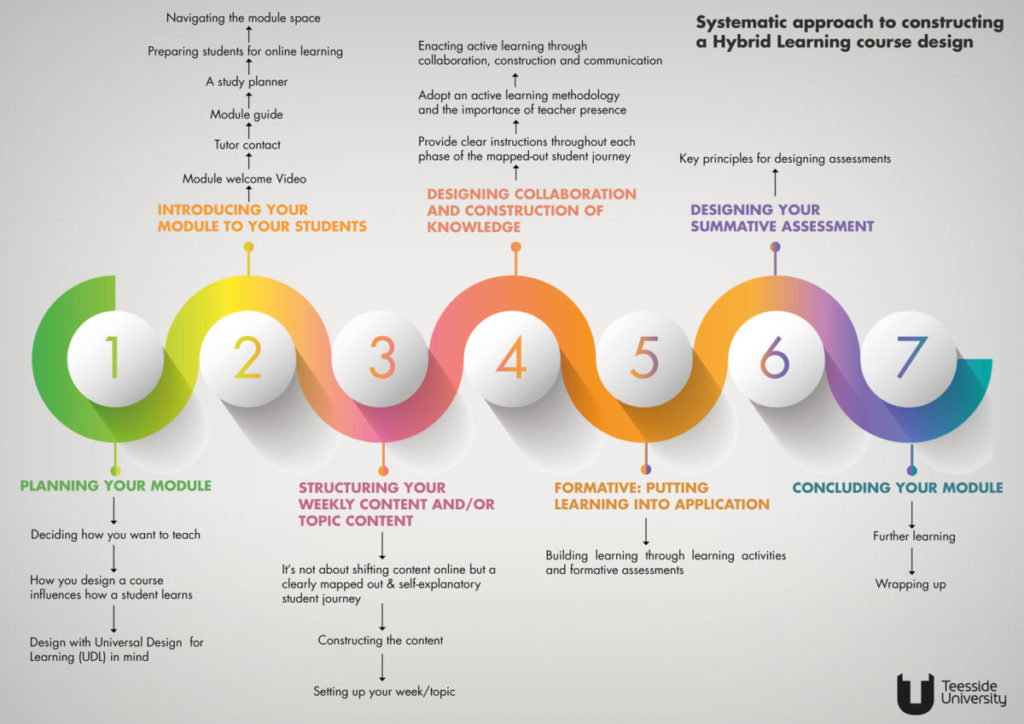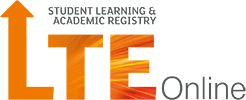Principles of Course Design: planning for multiple modes of learning and teaching
As we embark on business recovery, our focus is now on embedding enhancements, nurturing excellence in delivery and strengthening resilience in the event of future disruption.
From September 2020, the University will adopt a Hybrid Delivery Model consisting of on-campus and online delivery, aligned with Government social distancing restrictions. This model is distinctive from existing forms of online or blended delivery. Subject to Government guidance, all students can expect the opportunity to spend some time on campus and some time learning online. The extent of either will depend on the evolution of the pandemic and the requirements of individual disciplines.
Attention is now increasingly turning to the coming academic year. The online environment will remain a crucial aspect of this ‘new normal’ and how student experience and quality is maintained is an important area that we feel can be addressed through the Principles of Course Design toolkit which we have created.
The Principles of Course Design for Hybrid Learning toolkit sets out a systematic learning design for the creation of Hybrid Learning courses and modules. The systematic design of the student experience and learning journey process is vital in a successfully designed Hybrid learning course. The resource is designed with a deep appreciation for the complex art, science and craft of good teaching, both online and offline, with a key focus on the design of courses through harnessing the rich learning potential and transformative advantage derived from the affordances of technologies and digital solutions.

Within each element of learning design is a series of key considerations and principles of course design to help you and your course teams plan for multiple modes of learning and teaching, Course Teams and Module Leaders are encouraged to use the space provided to note your responses, thoughts or comments on how you see your course and modules becoming resilient towards the transition to the Hybrid module of learning, in light of Covid-19 Learning and Teaching Strategy.
The key considerations should be interpreted and discussed in conjunction with the Academic Enhancement Framework (Hybrid Model) Matrix.
The toolkit also helps course teams and individual tutors to identify the support required to enable this to happen and the rationale behind decisions taken at various stages of your course design and/or delivery. This work sits alongside the transformative projects on flexible assessments and personal tutoring, details of which can be found in the Resources section of LTE Online.
Using the toolkit
The toolkit is a resource to support the Resilience Review process for schools, to contextualise the Hybrid Learning model to the nature of the subject discipline and assisting in determining the extent to which courses could be delivered within the Hybrid Model without the student experience being unduly impacted upon. The guidance within this toolkit draws upon a selection of best practice already available.
This resource will be useful for all course teams to have whilst making plans in reimagining their courses and modules for the coming academic year. The focus of this work is on how to design course and modules for Hybrid Learning and particularly focusing on the design of the online components of the Hybrid Learning model.
Through a seven-stage systematic design consideration for Hybrid Learning, with a particular focus on the online component of hybrid learning, the toolkit offers:
- A methodology for seamless and coherent integration of digital solutions as part of a campus-delivered course design, identifying things to consider when making decisions about what activities are best served online and what are best on campus, how you make that decision.
- The suggestions and key questions within each section of the seven part journey can be utilised as a resource to use as a key part of their course design process, structured around student centredness, whilst at the same time considering their own individual developmental needs and those of the wider course team and developing an academic offer that is of rigorous and high-quality.
- To provide a deep, analytical and robust design tool for the design of Hybrid Learning courses from a student journey perspective, thereby developing and maintaining an academic quality offer that is rigorous and high-quality.
Support for Staff
Colleagues are encouraged to regularly visit LTE Online, which continues to expand rapidly with resources and self-help guides. New blog posts are published at noon each day. Through subscribing to the site, daily updates will be distributed directly to your inbox. In addition, you can contact elearning@tees.ac.uk for individual support. Through this mechanism, we offer 1-1 coaching sessions with Principal Lecturers, Digital Learning Developers or Online Learning Designers via Microsoft Teams.
